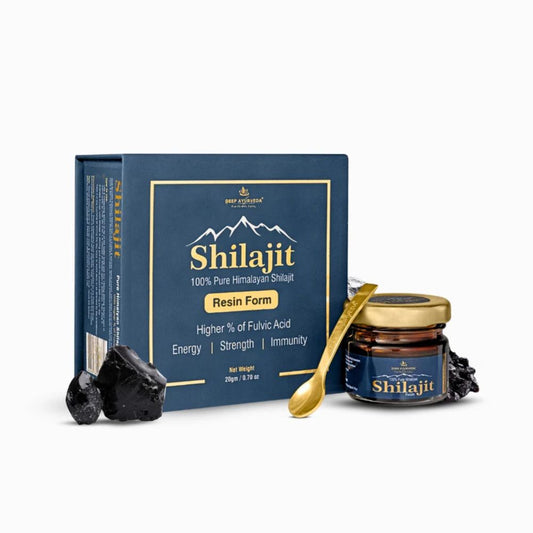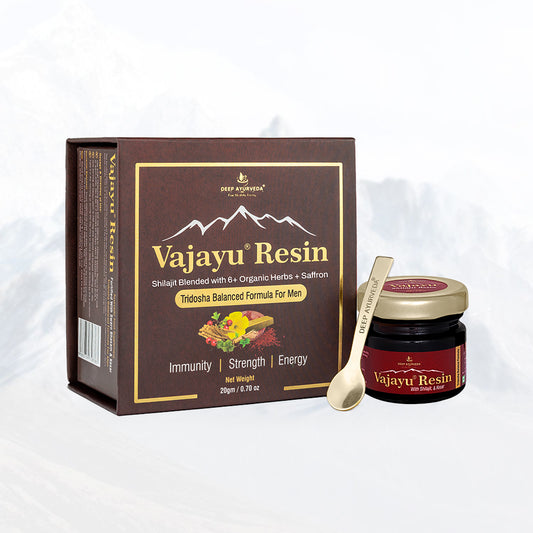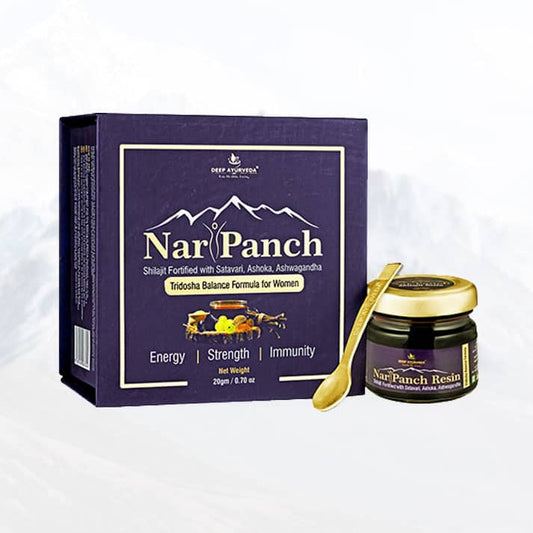TL;DR
-
Coffee works — but it’s not always the healthiest long-term fix.
-
Real, lasting energy comes from sleep, hydration, steady food, movement and stress management.
-
A few evidence-backed supplements can help if deficiency or need is identified — only one of them (Shilajit) is mentioned below, with research references and safety notes.
-
Practical 7-day reset at the end — Aussie-friendly and easy to follow.
Why we need alternatives to caffeine (and why Australians care)
Australians love coffee — it’s part of our culture — but caffeine is a short-term boost, not a long-term solution for energy or stamina. National analysis shows most Australians consume caffeine regularly, and public health authorities are tracking intake and its effects across age groups. Reaching for coffee multiple times a day can mask underlying causes (poor sleep, nutrient shortfalls, dehydration, stress) rather than fix them.
Workplace fatigue is also a real safety and wellbeing issue in Australia — employers and employees are paying more attention to sustainable solutions that reduce tiredness and accident risk.
1 — Sleep: the single biggest energy hack

Why it works: sleep restores brain function, muscle repair and mitochondrial health. If you’re chronically getting <7 hours or poor quality sleep, nothing else will create sustainable energy.
Practical Aussie tips
- Aim for consistent sleep/wake times even across weekends.
- Wind-down routine: 60–90 minutes before bed, dim lights, avoid screens; consider a 20-minute journalling or breathing practice.
- If you live in northern Australia where daylight hours vary less, still keep a routine; in southern states remember to adapt for daylight savings and shorter winter days.
- Track sleep for 1–2 weeks with a simple wearable or a sleep diary to spot patterns.
2 — Hydration & electrolytes: small, immediate wins
Even mild dehydration reduces energy and concentration. Australia’s hot summers and outdoor lifestyle make hydration vital.
Quick rules
- Start the day with a glass of water. Carry a refillable bottle.
- Add electrolytes (or natural options: a pinch of salt + lemon) after heavy sweating.
- Avoid sugary “energy” drinks — they spike then crash energy.
3 — Food that supports steady energy (what, when, and why)

Energy crashes often come from high-GI meals or long gaps between meals.
Meal strategy
-
Breakfast: aim for protein + wholegrain + healthy fat (e.g., eggs + wholegrain toast + avocado).
-
Lunch: balanced plate — lean protein, veggies, healthy fats, and some slow carbs. A popular Aussie example: grilled chicken salad with quinoa and a lemon-olive oil dressing.
-
Snacks: Greek yoghurt + nuts, hummus + veg sticks, a boiled egg — avoid biscuits and sugary bars that cause rapid blood sugar swings.
- Prioritise iron-rich foods (red meat, lentils, spinach) and vitamin C with meals to aid absorption — low iron is a common and treatable cause of fatigue.
Practical tip: modest, frequent meals (every 3–4 hours) keep blood sugar and energy steadier than two big meals plus snacks of convenience foods.
4 — Movement & recovery: micro-workouts for big payoff
Short bursts beat none. Aussie life is busy — build movement into your day.
- Do 10-minute bodyweight sessions (squats, push-ups, lunges) mid-afternoon for a natural pick-me-up.
- Resistance training 2× week improves muscle, metabolic health and long-term stamina.
- Prioritise active recovery: walk in the sun (vitamin D + mood + movement) — Australia is perfect for this, but use sunscreen and shade where needed.
5 — Stress management, circadian rhythm & daylight
Chronic stress and poor circadian cues (light at wrong times, irregular schedules) blunt energy.
Practical tips
- Morning daylight exposure (10–20 minutes) helps set your body clock — step outside for a quick walk.
- Short breathing breaks during the workday reduce sustained stress. Try box breathing (4 in, 4 hold, 4 out, 4 hold) for 1–2 minutes.
- If you do shift work, keep sleep hygiene absolute: blackout curtains, earplugs, and a strict wind-down routine.
6 — Supplements & targeted nutrients (test before you supplement)
Before adding any supplement, test if you need it — blood tests for iron, B12, thyroid and vitamin D are simple and common starting points.
Common evidence-backed nutrients
-
Iron: deficiency causes fatigue — only supplement if tests show low iron or anaemia.
-
Vitamin D: low levels are common in southern winters and in people who work indoors; deficiency links to low mood and fatigue.
-
Vitamin B12: especially for vegetarians/vegans or older adults.
- Magnesium: may support sleep quality and muscle recovery in some people.
Adaptogens & other natural options: items like rhodiola and ashwagandha are popular; some people find benefit for stress and fatigue, but evidence varies and quality control matters. The adaptogen and natural supplement market is growing fast — consumers want proven, transparent products.
One-time product mention: Shilajit (why we include it)

We include Pure Shilajit Resin because it’s a traditional natural resin with emerging clinical data suggesting benefits for energy and fatigue in small studies. Laboratory and clinical research point to fulvic acid, humic substances and trace minerals in shilajit as candidate mechanisms supporting mitochondrial function and reducing fatigue in some trials. For example, some clinical studies used ~250–500 mg/day and reported improvements in fatigue/energy markers — however, larger trials are still needed.
How we recommend it (tone for product block)
How to present on your product page: “Traditionally used for energy and vitality. Clinical studies have used small doses (250–500 mg/day). Consult a healthcare professional before use.” (Do not claim it cures or treats disease.)
Important safety note: Always check with a GP if pregnant, breastfeeding or taking medications. If you market or advertise shilajit in Australia, ensure compliance with Australian regulatory requirements (see regulatory note below).
7 — When it’s time to see a GP
See a GP if:
-
You have persistent, worsening fatigue lasting several weeks despite lifestyle changes.
-
You have other symptoms: unexplained weight change, breathlessness, heart palpitations, persistent low mood, or sleep issues.
Common tests: full blood count (FBC), iron studies, B12, thyroid tests, vitamin D and a sleep assessment if suspected sleep apnoea.
Practical 7-day “Energy Reset” (Aussie friendly)
Goal: improve sleep, stabilise meals, start simple movement and reduce reliance on caffeine.
Day 1 — Reset sleep: set a bedtime; no screens 60 mins before bed.
Day 2 — Hydration focus: carry a 1-L bottle and aim for 2–2.5 L (adjust for activity).
Day 3 — Stabilise meals: start each day with protein + wholegrain; add a vegetable at every meal.
Day 4 — Micro movement: 2 × 10-minute bodyweight sessions. Get 15 minutes morning daylight.
Day 5 — Stress break: 2 × 5-minute breathing sessions; walk lunch break.
Day 6 — Nutrition tune: test iron/vitamin D if symptoms persist or you’re at risk.
Day 7 — Evaluate & plan: Sleep log + notes. If fatigue remains, book GP tests.
Daily checklist (quick): 7–8 hours sleep, 2 L water, 3 balanced meals + 1 healthy snack, 10–20 min movement, 1 breathing break, 10–20 minutes daylight.
Wrap up — the long game beats the quick fix
If you want reliable, lasting energy in Australia, the answer is rarely “just one thing.” A bundle of sleep, steady food, movement, stress management and targeted supplements (if needed) will transform how you feel. A single natural option like shilajit can be part of that bundle — but it should be positioned honestly, used with care, and supported with good product quality and regulatory-compliant claims.
4) Regulatory & marketing reminders (important for your shop/CMS)
Regulatory compliance (TGA): In Australia, advertising and claims for therapeutic goods and complementary medicines are regulated — check the TGA’s Australian Regulatory Guidelines for Registered Complementary Medicines and the advertising guidance before making health claims about a product. Always avoid absolute “cure” or disease claims in marketing.
Some legal summaries note complexity around supply/advertising for certain traditional resins — check legal/regulatory counsel or TGA if you’re unsure before advertising shilajit with therapeutic claims.







